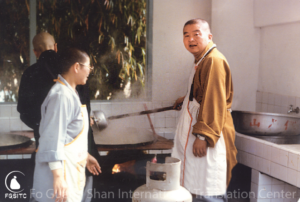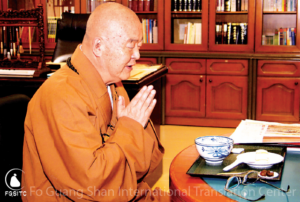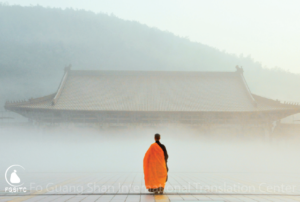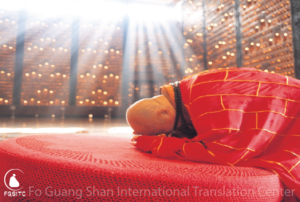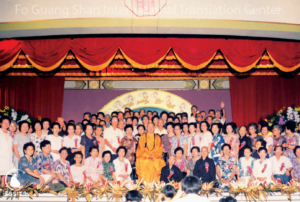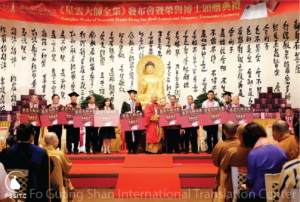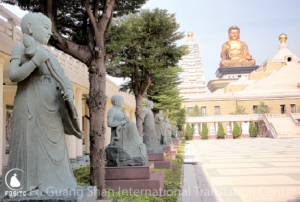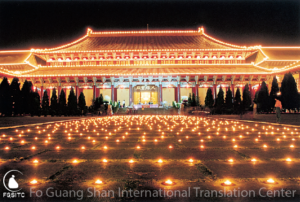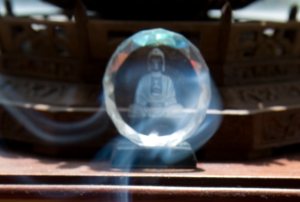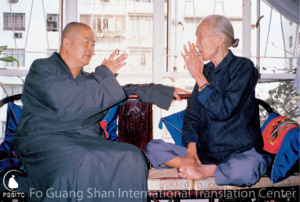Highlights from the book I Am Not a Monk “Sponging Off” Buddhism, by Venerable Master Hsing Yun
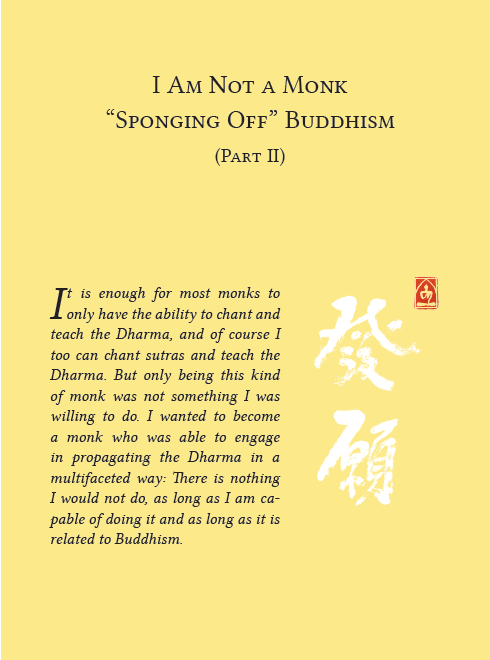
I Am Not a Monk
“Sponging Off” Buddhism
(Part II)
It is enough for most monks to
only have the ability to chant and
teach the Dharma, and of course I
too can chant sutras and teach the
Dharma. But only being this kind
of monk was not something I was
willing to do. I wanted to become
a monk who was able to engage
in propagating the Dharma in a
multifaceted
way: There is nothing
I would not do, as long as I am capable
of doing it and as long as it is
related to Buddhism.
I am fortunate in knowing my own shortcomings and frustrations, so I simply must do all I can in striving for the best and redoubling my efforts
- Cultivating Cultural Education, Doing Good with Compassion
Since I understood my own failings, I did my best to improve myself. Consequently, when I saw that few people cultivated the cultural aspects of Buddhism, I became determined to become a cultural monk. I also noticed that few people went on to promote Buddhist education, so I thought I could increase my effort in this area and become an educational monk. As for charity work, even though Buddhism has already done a lot in this area, I also wanted to encourage myself to not withdraw and be absent from this work, so I was also determined to become a monk doing good with compassion.
In the area of education, during the several decades of my career as a monk, I have set up five universities and a dozen or more Buddhist colleges in addition to the middle schools, elementary schools, and kindergartens; so I certainly should be called an “educational monk,” but I have never heard anyone ever say that I am an “educational monk.”
In the area of culture, my disciples inform me that I have written articles totaling more than thirty million words and published more than two hundred and seventy books. I have also run many journals, magazines, art workshops, and exhibitions, but no one has ever called me a “cultural monk.” I care about philanthropic work and make sure I do not lag behind others in this, and I have also immersed myself in providing disaster relief the same as my devotees. I have emulated Avalokitesvara Bodhisattva’s relieving of suffering and distress, yet no one has ever said that I am a “philanthropic monk.”
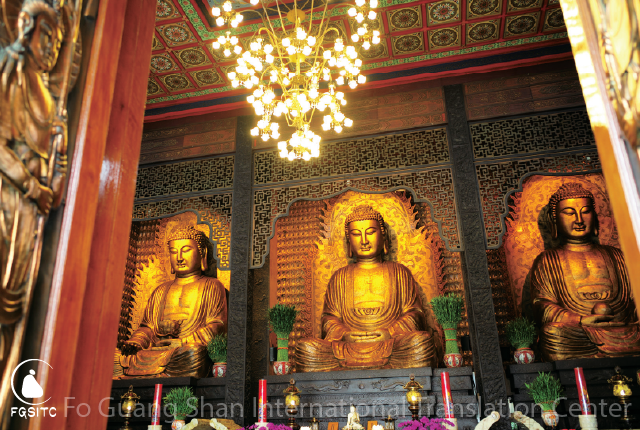
Fo Guang Shan’s temple registration application took over ten years to be approved. Each year several million people have visited the temple, ever since it opened more than 50 years ago. No admission fee has ever been collected. Pictured are the Buddhas in the Main Shrine at Fo Guang Shan.
Photo provided by Commonwealth Publishing
However, there is one name I do dislike hearing, the one people actually speak about in many cases, and that is “political monk.”
- Caring about Society, Voicing the Aspirations of the People
In talking about this term, “political monk,” I am aware of how unqualified I am to do so. Moreover, I was also unwilling to be known as a political monk because I am not interested in politics. But the more I was unwilling to do so, the more some people in society began talking about it; added to that, it was circulated by the media, so the name of “political monk” was constantly being spread all around. It seemed that only this name suited me in their estimation. I undertook my own self-examination: Why did I suddenly change from a “monk who does not ‘sponge off’ Buddhism” into a “political monk”?
Later on, I learned the reason: Since I cared about society, sometimes in my articles I would inevitably give some voice to the aspirations of society and its people about the hardships being faced.
In addition, some political figures would often come and visit me. . . . Within the guidelines for members of the Buddha’s Light International Association (BLIA), there is one particular item for association members: “Greeting people when they come and bidding farewell when they go.” These guests who have traveled far should be received by me after all. Once reporters knew, they would announce in the newspapers how these many political figures had come to Fo Guang Shan to pay a visit, and they would further say how I personally received them. It was probably in this way that I indeed became a “political monk.”
Chapter subheadings:
- Winning Glory for Buddhism, Pressing Ahead with Localization
- Being Self-Aware of Shortcomings, Redoubling Efforts in Striving for Progress
- Cultivating Cultural Education, Doing Good with Compassion
- Caring about Society, Voicing the Aspirations of the People
- Politically Active but Not Politically Involved Is the Principle for Action
- Paying Attention to Form: Dignified in Movement and Comportment
- Not Doing What Is Non-Buddhist, Broadly Performing the Service of Propagating the Dharma
- Turning Nothing into Something: Obtaining Supporting Conditions from All Directions
- Income from the Written Word as an Offering to All Sentient Beings
The Author’s Preface, Forewords, Afterword, and Chinese Editor’s Remarks are available to read online.

